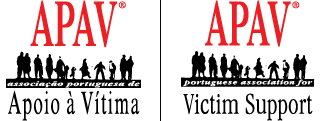
Portuguese version of the Victim Support Europe Manifesto

APAV launched the Portuguese version of the 2014-2019 Victim Support Europe Manifesto, which aims to be an asset to the future European Parliament Act. It is time to act in the defense of approximately 75 million crime victims (direct or indirect) per year at the European Union. The time has come for policy makers and legislators to exercise their function and play a key role in providing the necessary means of turning the rights of victims of crime in the EU into an effective everyday reality.
This important document was prepared by Victim Support Europe (a European network bringing together 34 organizations that assist victims of 25 European countries, of which APAV is a founding member and holds the vice president position). In effect, the document contains 10 challenges and 10 objectives.
Victim Support Europe is expected to completely and comprehensively implement the policy for victims of crime in all the EU member states. APAV monitors and supports this challenge and requirement, and Portugal and its government must take greater responsibility for Portugal, as the country belongs to the historical origin of earlier legal instruments of the European Union, namely the rights of victims of crime.
Victim Support Europe Manifesto 2014-2019 [Portuguese Version]
New website to promote the victims rights

In order to promote the rights of victims of crime, APAV launched the website infovictims.com.
This website was presented during the Infovictims Seminar, that took place at the Calouste Gulbenkian Foundation in Lisbon, past September.
The new site infovictims.com aims to inform dynamically and interactively the rights of victims of crime. There were developed two versions of the website, in English (infovictims.com) and Portuguese (infovitimas.pt).
The website was developed under the Infovictims Project, promoted by APAV and co-financed by the Criminal Justice Programme of the European Commission.
European Parliament votes in favour of justice and services for Undocumented Migrant Women
 "The Platform for International Cooperation on Undocumented Migrants (PICUM) and Women against Violence Europe (WAVE) commend the European Parliament for passing the resolution on undocumented migrant women in the European Union.
"The Platform for International Cooperation on Undocumented Migrants (PICUM) and Women against Violence Europe (WAVE) commend the European Parliament for passing the resolution on undocumented migrant women in the European Union.
The plenary session of the European Parliament today voted on a resolution on ‘Undocumented Women Migrants in the European Union’. The motion for this resolution came from an own-initiative report of the Committee on Women's Rights and Gender Equality (FEMM). Prepared by rapporteur Norica Nicolai (ALDE, Romania), the resolution calls on national and European authorities to ensure that a woman’s immigration status does not prevent her from accessing decent housing, healthcare, and education, and to safeguard access to justice for those experiencing violence and exploitation.
While it is regretful that some key recommendations were not passed such as a call for member states to ratify the UN Convention on Migrant Workers and the need to increase legal and social assistance for undocumented women, the resolution marks an important step regarding the need to protect undocumented women’s rights in Europe.
Across the EU, undocumented women face significant barriers to access to support, services and justice. Because immigration control is often given priority to their needs as victims, they risk severe reprisals when contacting the police. As a consequence, female victims of violence are detained and deported, while their perpetrators remain unpunished. This protection gap means that perpetrators of violence against women can actually threaten their victims with the police.
When she became undocumented in Sweden, Miriam (33) found herself in a chain of abuse that was impossible to break. She was turned away from the local women’s shelter and lived in fear of the police. Her irregular status meant that she could be abused with impunity.
“He hit me and wanted to kill me, I could not go to the police because I have no papers. He said ‘if you leave me, I will call the police, you are a case for the police’. It was a very bad situation for me”,
The resolution recommends that member states now delink the prosecution of violence from immigration control so that all victims can safely report crimes. To ensure undocumented women are not turned away in their time of need, violence against women shelters are encouraged to waive requirements that women provide documentation. Finally, access to healthcare and education should be upheld, there should be no reporting of children of undocumented migrants.
The resolution marks an important recognition that all women should be able to access justice regardless of their residence status."
Source: PICUM
Campaign "Break the Silence" launched in Mato Grosso do Sul (Brazil)
 The Public Ministry of Mato Grosso do Sul (Brazil) launched on the March 14th the campaign "Break the Silence", with the aim of raising awareness of violence against women.
The Public Ministry of Mato Grosso do Sul (Brazil) launched on the March 14th the campaign "Break the Silence", with the aim of raising awareness of violence against women.
The "Break the Silence" campaign was originally developed by the agency JWT for APAV in 2005 and was adapted for publication in that Brazilian state in the wake of the Protocol signed between APAV and Public Ministry of the State of Mato Grosso do Sul.
This protocol of Cooperation was signed in February 2012 and aims to establish cooperation between the two institutions and to promote awareness and campaigns regarding domestic violence against women.
Seminary: Access to justice for crime victims in the EU | 10-11 April | Trier
 A seminary dedicated to “Access to justice for crime victims in the EU”, organized by the European Research Area (ERA), will be held in Trier, Germany, on 10th and 11th April. The event will have ten speakers from different european countries, being Portugal represented by João Lázaro, APAV’s President, and by lawyer Henrique Martins Gomes, from Carlos Pinto de Abreu Associates.
A seminary dedicated to “Access to justice for crime victims in the EU”, organized by the European Research Area (ERA), will be held in Trier, Germany, on 10th and 11th April. The event will have ten speakers from different european countries, being Portugal represented by João Lázaro, APAV’s President, and by lawyer Henrique Martins Gomes, from Carlos Pinto de Abreu Associates.
The meeting’s main goal is to analyse the new EU legal provisions considering the implementation and judicial practice in the Member States regarding the procedural safeguards and access to justice available to crime victims in the EU, with emphasis to in cross-border cases.
Therefore, as key topics we highlight the effective exercise of rights in criminal proceedings, access to justice in trans-national cases, support and protection measures and the European Protection Order.
For more information:
www.era.int








